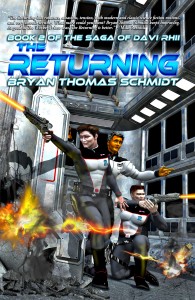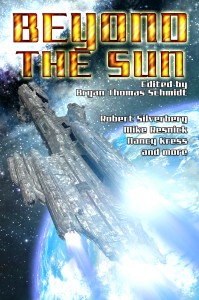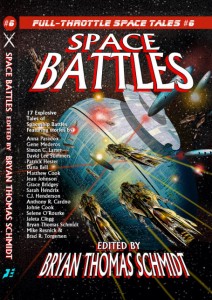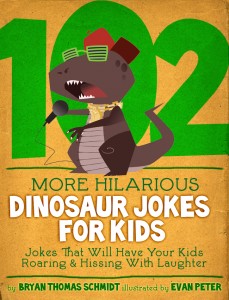 Recently, Writer’s Digest posted a contest based on Turkish novelist Orhan Pamuk’s 2006 Nobel Prize acceptance speech in which he addresses the questions: WHY DO YOU WRITE? Now normally I ignore such things, but I’m in a very contemplative mood today. And it’s a very valid question, one I think many writers may not be asking themselves enough.
Recently, Writer’s Digest posted a contest based on Turkish novelist Orhan Pamuk’s 2006 Nobel Prize acceptance speech in which he addresses the questions: WHY DO YOU WRITE? Now normally I ignore such things, but I’m in a very contemplative mood today. And it’s a very valid question, one I think many writers may not be asking themselves enough.
We all do what we do for various reasons, but, in my experience, understanding your motives is a key factor to great satisfaction and success. It allows you to focus and to fine tune decisions. It keeps you pressing on when obstacles and frustrations arise. And it gives you a sense of purpose, which, as writers know, can be hard to hold onto and easily lost in the midst of the labor of creating a manuscript.
Pamuk’s reason is quite compelling and worth looking at (use the link above), but what it did for me is cause me to reevaluate what my own answer might be. So here’s what I posted at Writer’s Digest’s site:
WHY DO YOU WRITE? Love to hear others’ answers but here’s mine: I write because I can’t NOT write. It’s a compulsion, an addiction. It’s not about money or fame. I write because there’s stuff I need to get out there into the world. I hope people are moved by it. I hope they’re entertained. I hope it makes them think. But I’ll still write regardless, because I don’t have a choice. At least the writers will understand that, I think. It’s a way of processing the world, understanding the meaning of life, making decisions and striving to grow to be a better man. It’s a way of exercising demons, demonstrating better ways and exploring human nature. I write because there’s a voice inside me crying to break free. I write because it’s who I am. That’s why I write. The question becomes how can I NOT write?
You hear a lot of arguing these days about people who “sell out” by using various antics. The guy who made himself into a bestseller via paying reviewers and other dishonesty or the person who leveraged hundreds of thousands of twitter following strangers into decent sales. But to me my mind, these are gimmicks that mean very little for the long run. They may make a big splash for a moment, but what happens in twenty years? Will the fame still exist? Will they still be writing? Will they still be getting bestseller rankings? Will they come to realize the fleeting satisfaction was empty and couldn’t last? Only these people probably will know the answer and not for a couple of decades.
Whether you believe in a Higher Power or not, you are the decision maker for your destiny in so many ways. You are in charge of who you are and who you become. You may ignore concern for it. You may just pretend to go with the flow. But the act of deciding to do that is choosing your destiny, in every sense. “Damn the consequences, I’ll deal with it later” is a decision. It may be a decision to deal with regrets some other day, but it’s still a choice you’re making.
For me, I prefer to have more direction. My SFFWRTCHT friends will mock me as being anti-chaos. But I’ve had my share of chaos in life, especially the past three years. Anyone who’s ever dealt with unemployment and a mentally ill spouse and all that comes with them at the same time, constantly, will understand what I mean. If you haven’t been through that, you really don’t. But even before all that, I’ve always been a purpose driven person–wanting to do things for a clear reason and with certain deliberation. It doesn’t mean I can’t be spontaneous. For example, I rarely do much outlining for novels or short stories and I am really good at improvising as a musician. But both of those have an overarching framework that gives them a sense of boundaries and structure. In one case, it’s the story idea, characters and/or setting. In the other, western musical theory. And I don’t think that means I can’t live in the moment at all, frankly. I just may put more thought into than some. Is that really so wrong?
You have to do what’s right for you, of course, but I do think asking yourself the questions to have a sense of boundaries–knowing where you want to be, where you are and how you plan to get there is helpful, especially for writers. Most writers will never achieve stardom and wealth. Many will toil in full time jobs and lives, while writing on the side, for their entire lifetimes. Others strike lightning. Good for them. I don’t know which I’ll be, and, honestly, I don’t care. I’d like to make a living from this. This month I will likely make half of what I need to live from freelance writing and editing. Full time would only put me mid-20k per year, which is not rich. But what it is is satisfying, and I can’t tell you how valuable that is. After 29 months of unemployment, my wife’s illness, divorce, cross country moves, near bankruptcy, unemployment problems, and more, to be doing something I enjoy sitting down to do and earning my living from it is such a blessing.
In my 43 years, I have worked many jobs that didn’t satisfy me creatively or fulfill my goals. I did it for the paycheck. I did it because I had to. I sacrificed stability to found a non-profit and teach the arts in developing countries to people who couldn’t afford or get that training any other way. I worked freelance so I could do fundraising and take time off to travel. I loved every minute, but it gave me no financial stability and benefits to help me through the crises I now face. What it did give me was a longing to be doing what I love, to chase my passions. And that I am being blessed with the opportunity to do that now is so gratifying.
But I know why I write. Why do you write? What keeps you going? Where do you want to be? How will you get there? I’d love to hear thoughts from fellow writers and readers. I hope this encourages yet challenges you. Most of all, I hope it makes you ask those questions to be reminded there’s a motive and reason that drives you. We all need that from time to time. I know I did.
If you’re interested in the Writer’s Digest contest, enter here with a comment: http://www.writersdigest.com/editor-blogs/there-are-no-rules/why-i-write-one-of-the-best-things-weve-read-all-week. Click here for Turkish novelist Orhan Pamuk’s 2006 Nobel Prize acceptance speech.
I wish you happiness and continued success. May you live your dreams. For what it’s worth…
 Bryan Thomas Schmidt is an author and editor of adult and children’s speculative fiction. His debut novel, The Worker Prince (2011) received Honorable Mention on Barnes & Noble Book Club’s Year’s Best Science Fiction Releases for 2011. A sequel The Returning followed in 2012 and The Exodus will appear in 2013, completing the space opera Saga Of Davi Rhii. His first children’s books, 102 More Hilarious Dinosaur Books For Kids (ebook only) and Abraham Lincoln: Dinosaur Hunter- Land Of Legends (forthcoming) appeared from Delabarre Publishing in 2012. His short stories have appeared in magazines, anthologies and online. He edited the anthology Space Battles: Full Throttle Space Tales #6 (2012) and is working on World Encounters and Space & Shadows: SpecNoir with coeditor John Helfers, both forthcoming and Beyond The Sun via Kickstarter. He hosts #sffwrtcht (Science Fiction & Fantasy Writer’s Chat) Wednesdays at 9 pm ET on Twitter and is an affiliate member of the SFWA.
Bryan Thomas Schmidt is an author and editor of adult and children’s speculative fiction. His debut novel, The Worker Prince (2011) received Honorable Mention on Barnes & Noble Book Club’s Year’s Best Science Fiction Releases for 2011. A sequel The Returning followed in 2012 and The Exodus will appear in 2013, completing the space opera Saga Of Davi Rhii. His first children’s books, 102 More Hilarious Dinosaur Books For Kids (ebook only) and Abraham Lincoln: Dinosaur Hunter- Land Of Legends (forthcoming) appeared from Delabarre Publishing in 2012. His short stories have appeared in magazines, anthologies and online. He edited the anthology Space Battles: Full Throttle Space Tales #6 (2012) and is working on World Encounters and Space & Shadows: SpecNoir with coeditor John Helfers, both forthcoming and Beyond The Sun via Kickstarter. He hosts #sffwrtcht (Science Fiction & Fantasy Writer’s Chat) Wednesdays at 9 pm ET on Twitter and is an affiliate member of the SFWA.







